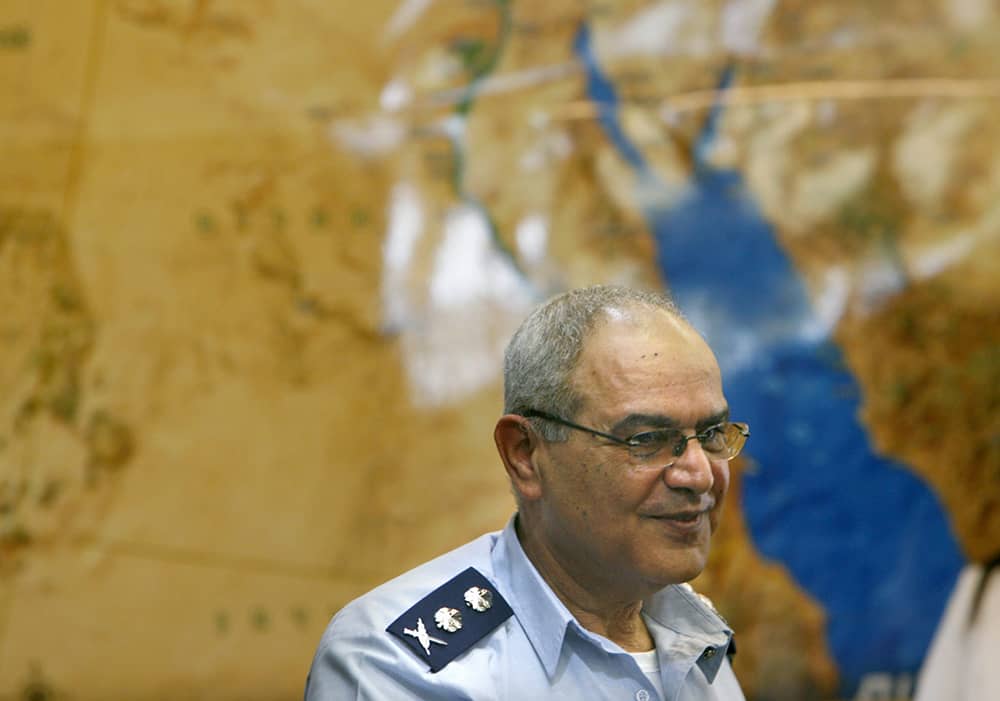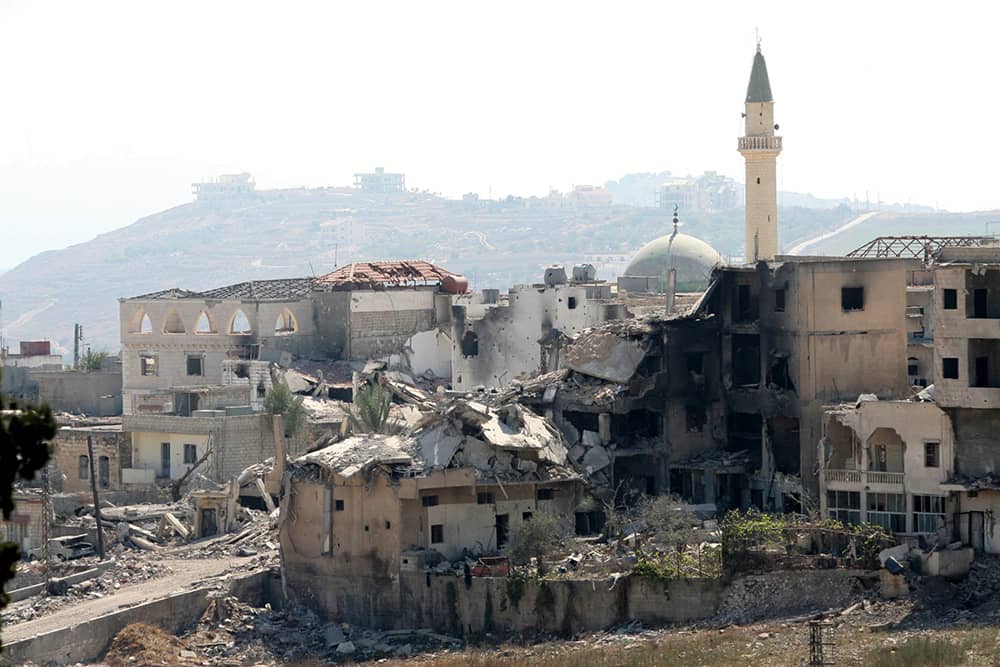July 12 marked the 15th anniversary of the Second Lebanon War, which is also known as the first “media war” in Israel. The Israel Defense Forces (IDF) emphasized the cognitive dimension during the war and went to great lengths to shape the Israeli public’s consciousness of what it achieved as a result of that war.
>> Military Matters: Read more from Pnina Shuker
Paradoxically, these cognitive efforts, some of which will be detailed below, came at the expense of actual achievements on the battlefield, prolonged the war’s duration, and inevitably, heightened the number of casualties. Israel was involved in another asymmetrical conflict in May, this time against Hamas, which provoked another round of escalation against Israel. In the aftermath of Israel’s Operation Guardian of the Walls, sharp criticism was heard regarding the poor advocacy efforts during the fighting—toward the Israeli public, as well as the international community. Israel’s obsession with promoting an image of victory during the Second Lebanon War had caused the public to be disillusioned with the emphasis on the cognitive dimension of the war; in recent years, however, Israel has moved to the opposite extreme of ignoring advocacy efforts during wartime, as we can see from analyzing Operation Guardian of the Walls.
Information Campaigns as an Integral Part of the Military Act
Public affairs is a dimension of every foreign policy; when democracies in particular resort to the use of force, they tend to reference that aspect, taking into account the need to mobilize the public for sacrifice and to maintain its support. Asymmetrical confrontations, today the predominant form of conflict, intensify the importance of public affairs—for both sides of the barricade. The non-state actor recognizes the opponent’s civilian population as the “soft under-belly” and therefore focuses on it. Acknowledging its military inferiority, the non-state actor devotes the majority of its efforts to information campaigns, both to instigate terror among the opponent’s public, as well as to convince the international community of its righteousness. At the same time, the state actor must counter the efforts of the non-state actor toward all relevant target audiences. Moreover, considering the current post-heroic era, which is unjustifiably characterized by low public tolerance for casualties, states often prefer to act through information campaigns in order to avoid unnecessary risk to its troops.
The IDF’s Information Campaign During the Second Lebanon War
In the years preceding the Second Lebanon War, the IDF began to internalize the magnitude of the cognitive aspect of military operations. Under Chief of Staff Moshe Ya’alon, senior commanders at the IDF understood the importance and necessity of shaping the perceptions of Israeli society during wartime, as well as those of the enemy. Thus, in January 2005, the Center for Cognitive Operations was established, with the mission of examining aspects of information campaigns during military operations and initiating operations that would influence the enemy’s perception. This center was directly subordinate to the head of the IDF Operations Directorate, attesting to its considerable significance.
Ya’alon’s successor, Dan Halutz, adopted a similar approach, whereby every war is, first and foremost, a battle over perceptions. Accordingly, when the Second Lebanon War broke out, the IDF made many attempts to generate a so-called victory image. Halutz stated that “our strategy is to create the perception of the weakening of Hezbollah, inter alia, by capturing/ killing the organization’s terrorists and giving public resonance to the matter.” Thus, throughout the fighting, IDF forces were ordered to document bodies of Hezbollah terrorists, illustrating their victories.
Moreover, during the war, several controversial and highly criticized military operations jeopardized soldiers for the sake of obtaining the desired victory image. For example, the IDF ordered the ground forces to take over the town of Bint Jbeil, which was not a target of any considerable strategic importance. It was, however, where Hezbollah leader Hassan Nasrallah had delivered his infamous speech after the Israeli withdrawal from Lebanon in 2000, when he said that Israeli society was “weaker than a spiderweb.” The IDF forces advanced and retreated no less than five times until Bint Jbeil was conquered, nearly at the end of the war. Thirty-five Israeli soldiers were killed for the sake of that questionable purpose.

Additionally, on August 12, 2006, the IDF decided to launch a large-scale ground operation, despite knowing that the UN Security Council was supposed to pass a resolution about a cease-fire that same evening. The discussions in the IDF and within the political echelon about launching the operation focused heavily on the question of “staging the victory”: How could the IDF instill the sense that it had emerged victorious from the war, despite everything that had happened in the previous four weeks? Apart from the cognitive achievement, the ground operation could not have produced any strategic gains, given the timing of its launch.
The IDF’s Information Campaign During Operation Guardian of the Walls
Like other recent rounds of fighting against Hamas, Israel’s Operation Guardian of the Walls came to an end without a clear military victory. The information campaigns aimed at the Israeli public, as well as the international community, were meager and inconsistent. Furthermore, the credibility of the IDF spokesperson had been severely damaged, after having stated that the IDF forces were embarking on a ground maneuver in the Gaza Strip, which retrospectively was an intentional act of deception preceding air assaults on Hamas’s tunnel system. While this successful military action could have been portrayed as a cognitive achievement, its potential was not sufficiently leveraged, obscured by the sharp international criticism of the IDF’s deception.
In this round of fighting, the IDF did not sufficiently use intelligence materials in a timely way for the purpose of information campaigns. For example, the IDF’s airstrike on the al-Jalaa building, housing the offices of American news agency Associated Press, as well as other international media outlets, neither preceded nor followed an information campaign aimed at the international community, regarding Hamas’s control and use of that building. Instead, Israel delayed responding to the firm international criticism about this assault, with the justification having remained classified.
Nonetheless, despite the considerable military achievements of the operation, the prevailing belief of the home front in was that the operation in retrospect had been unnecessary, as the IDF again had missed the opportunity to strike hard at Hamas. These sentiments were expressed in a recent survey conducted by the Israel Democracy Institute at the end of the operation. According to the findings, the majority of the Israeli public gave the government a high score for its managing the operation’s military dimensions, but only half the respondents felt similarly about the advocacy efforts targeting the Israeli public. Notwithstanding the lack of official daily briefings to the public, the IDF never presented the aims of the operation—assuming that they had been defined—to the public, thus preventing the public from being able to assess the extent to which the military campaign had achieved its aims.
While Hamas succeeded in its psychological operations (PSYOP) efforts directed at the Israeli public, such as threatening to launch missiles at Tel Aviv at a certain hour, Israel did not make any significant counterefforts. The fact that Hamas managed to sow fear and panic among many Israeli citizens once again emphasized Israel’s inferiority, compared to a terror organization, in the realm of cognitive campaigns.
Conclusion
In comparing the IDF’s cognitive efforts during the two operations reviewed above, it is clear that the IDF veered widely regarding the battle for the hearts and minds of its target audiences—from overemphasis to neglect. With the lessons learned from the Second Lebanon War, Israel established the National Information Directorate in 2007 within the Prime Minister’s Office, to ensure the advocacy efforts of the civilian authorities—the rationale of which was understandable and necessary. One of the main lessons of Operation Guardian of the Walls is the need to strengthen the National Information Directorate, a challenge that lies before the new government. As the IDF centralizes significant information capabilities, it therefore should support Israel’s advocacy efforts during wartime.
As another round of escalating conflict could be just around the corner, the IDF should internalize the following lessons drawn from recent conflicts:
Rapid response is crucial, preferably using visual means, especially when people are inundated with information from multiple channels and are not always able to distinguish between true and false. Hamas and Hezbollah have shown that they understand how a picture really is worth a thousand words, as they widely use visual means on social networks to smear Israel. Therefore, Israel must keep up with the rapid pace and flood the social networks with the “smoking guns” that can justify its military actions and build legitimacy, both external and internal.
When planning information campaigns, no target audience should be treated as homogeneous; rather, the various forces that constitute the target audience need to be analyzed and the messages designed accordingly, both in terms of content and language. Operation Guardian of the Walls provides us with a unique lesson in this regard. Given the unprecedented wave of violent demonstrations by Israel’s Arab citizens during the operation, Israel should have launched a broader advocacy effort aimed at this specific population group. Israel traditionally neglects this important target audience, at both the practical level and in terms of advocacy. Thus, it is no wonder that Hamas is able to drive a wedge between Israel and its Arab population. Hamas constitutes a serious internal threat to Israel, and Israel must strive to deny it the achievement of mobilizing Israel’s Arab society in its favor.
The information campaigns that accompany military actions must be supported by significant kinetic achievements; otherwise, even the most successful cognitive campaign will not prevail over time. The IDF’s inability to stop the rocket fire both during the Second Lebanon War, as well as during Operation Guardian of the Walls, led to a sense of frustration among the Israeli public in the aftermath of these operations. Therefore, IDF should focus its efforts, first and foremost, on achieving its goals—as defined in a strategy document from 2018—“to defend and win.”

